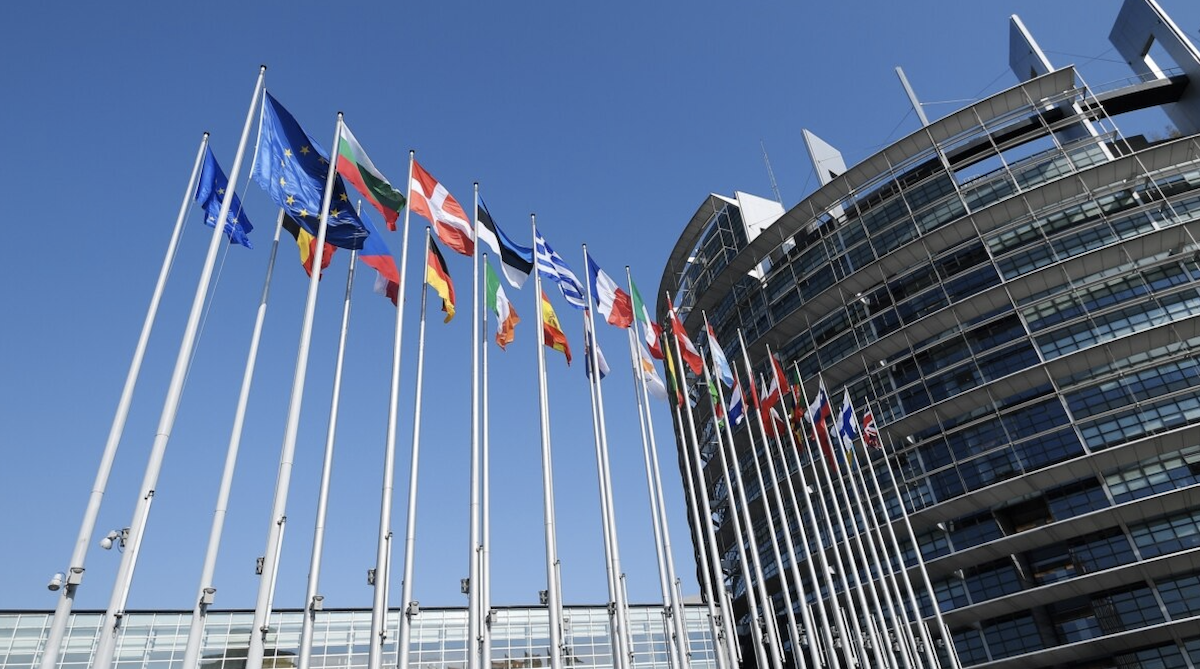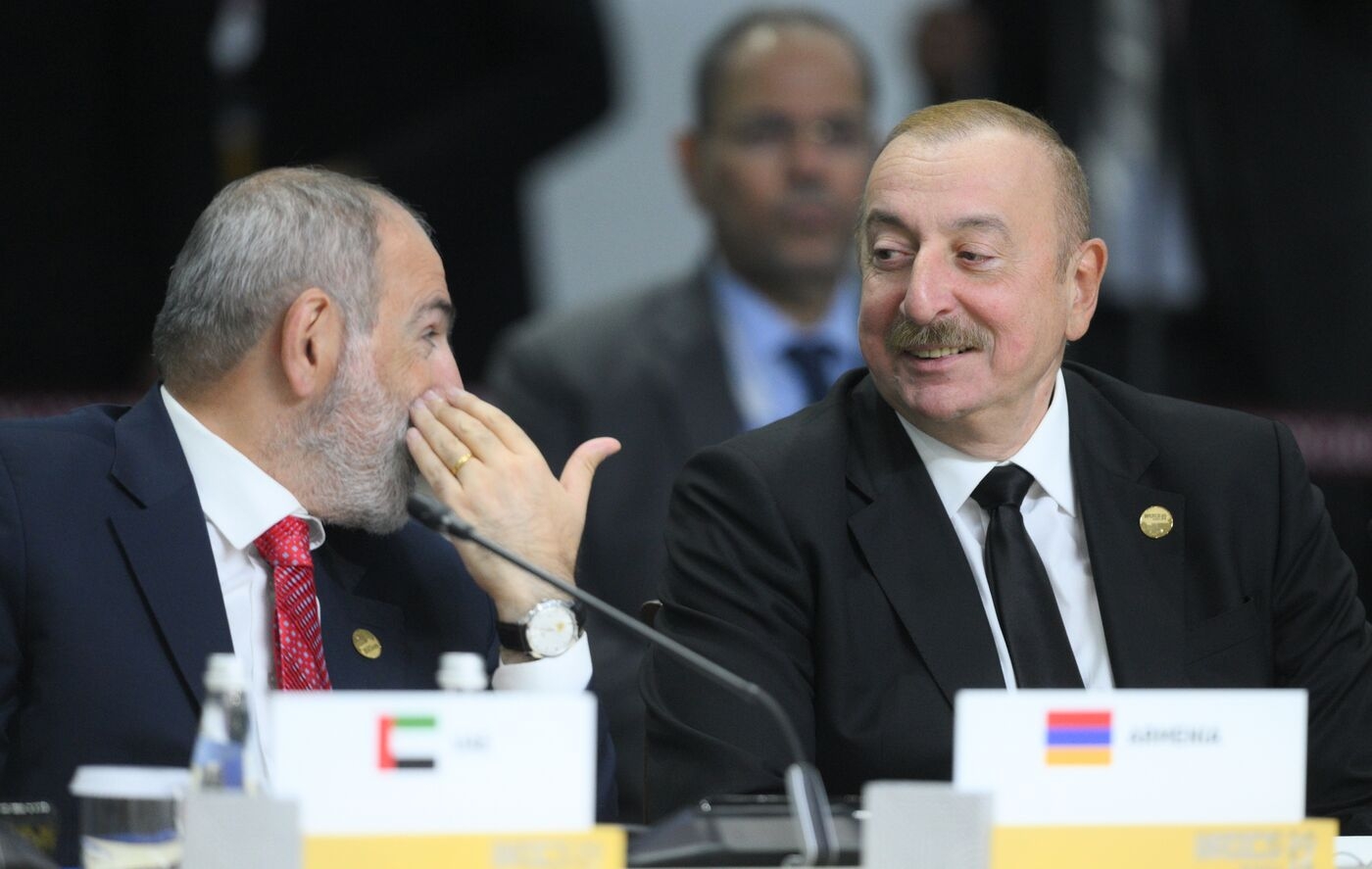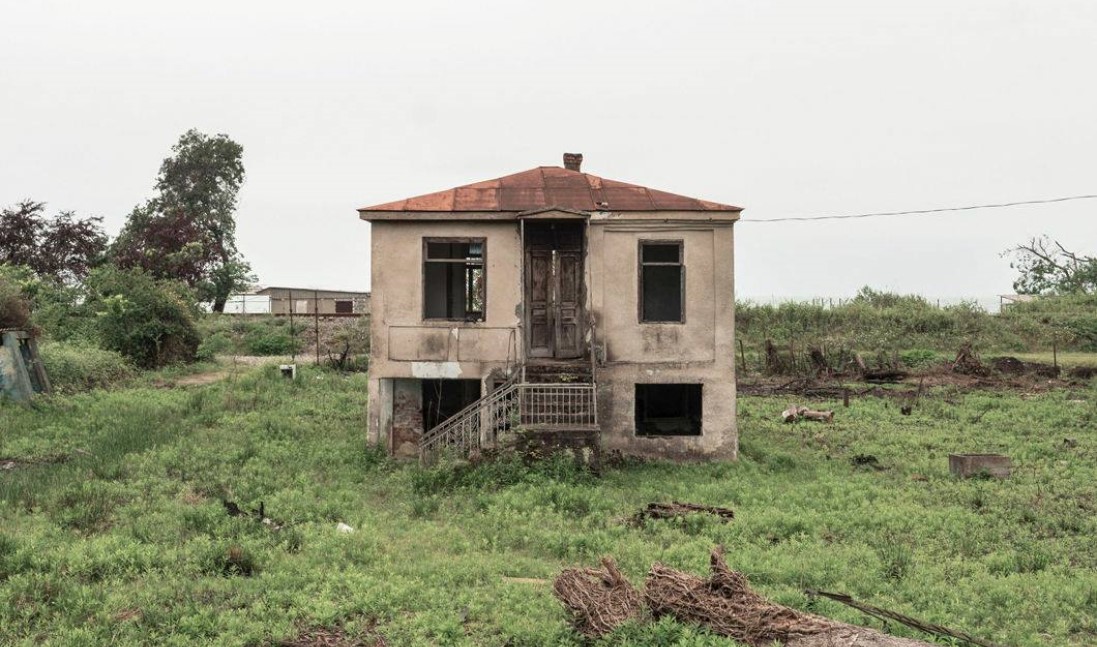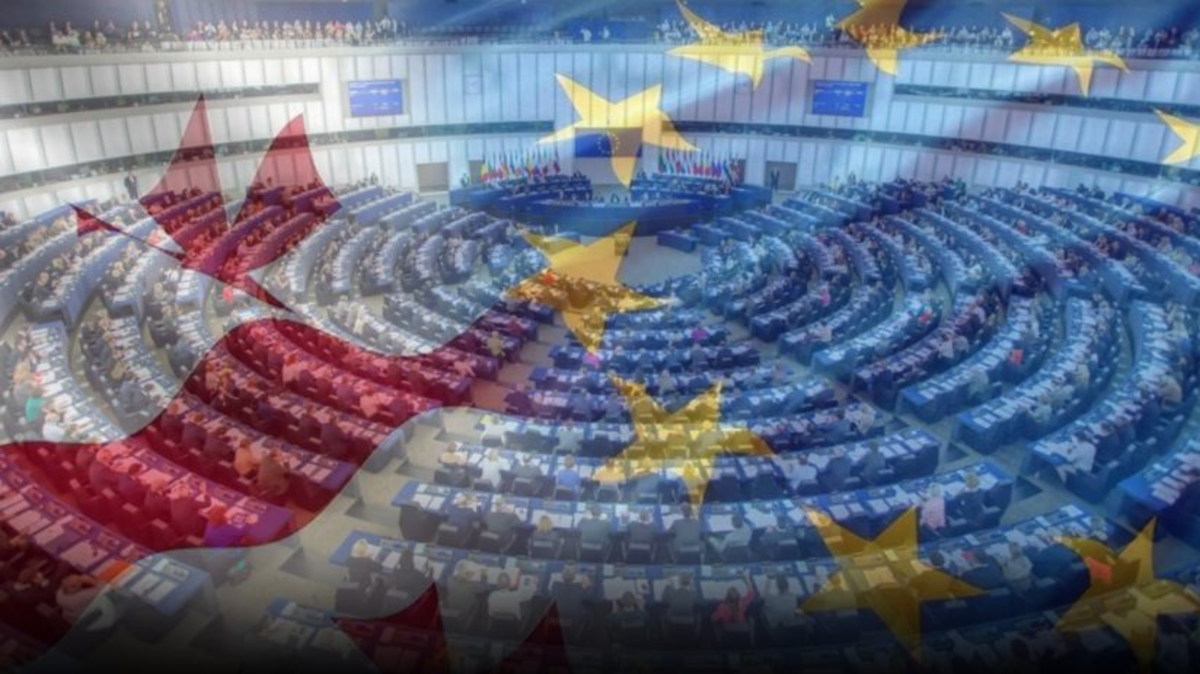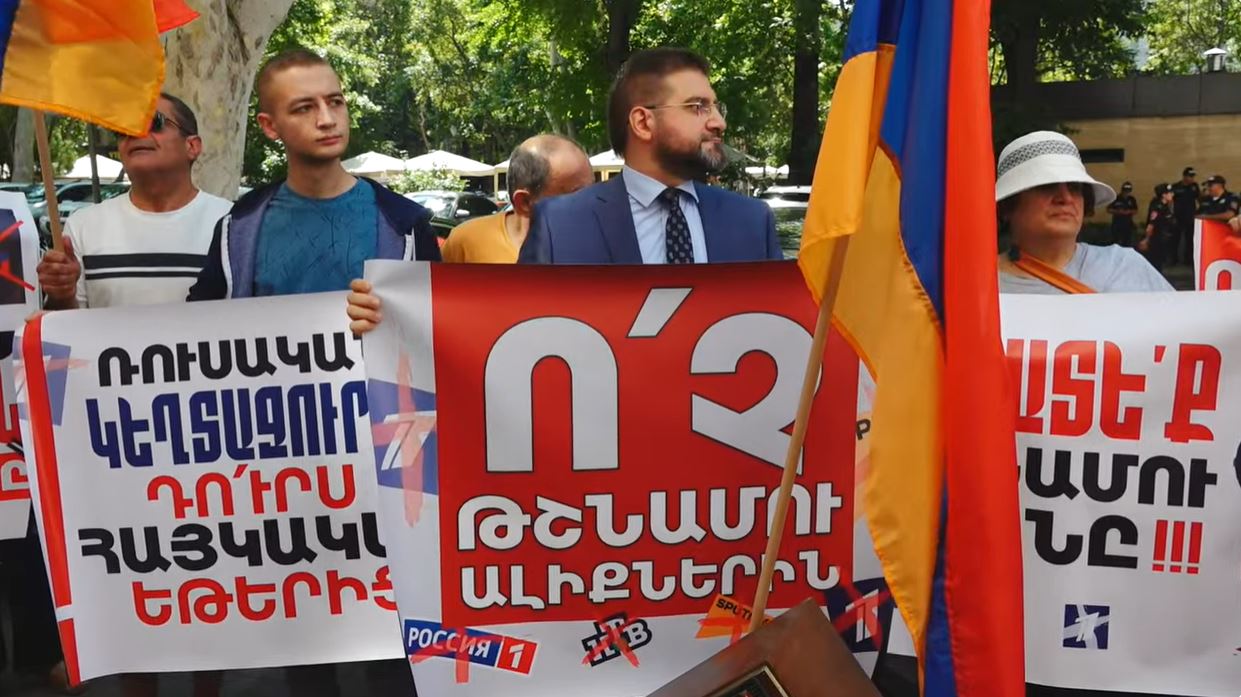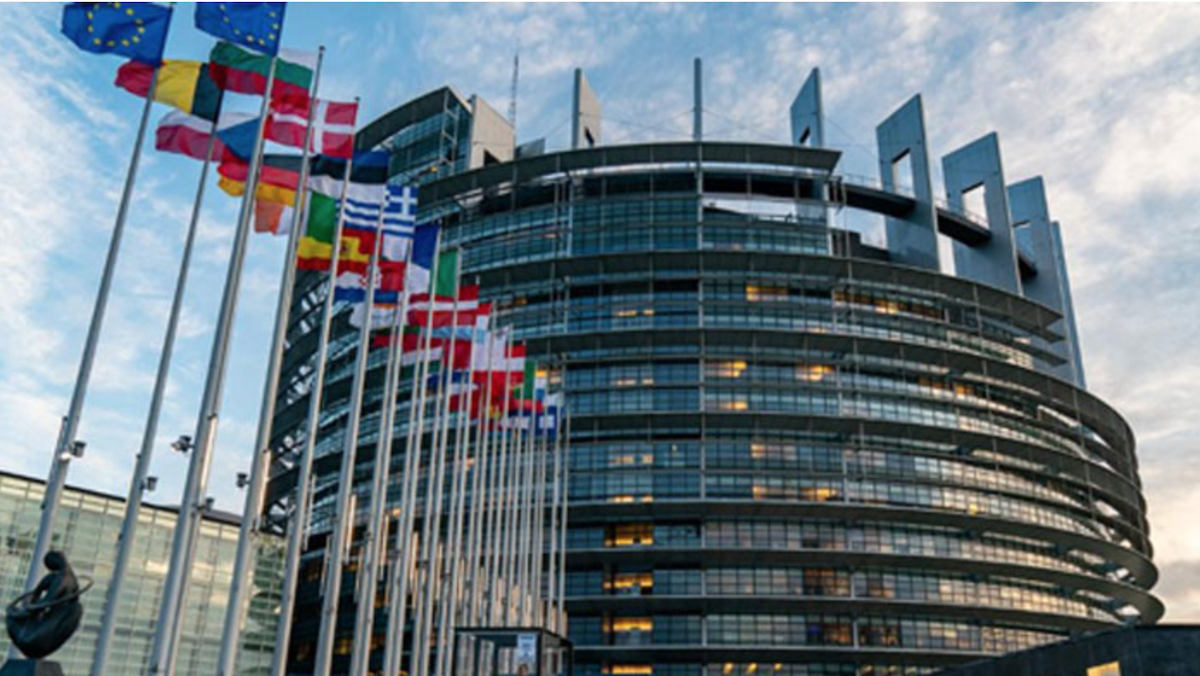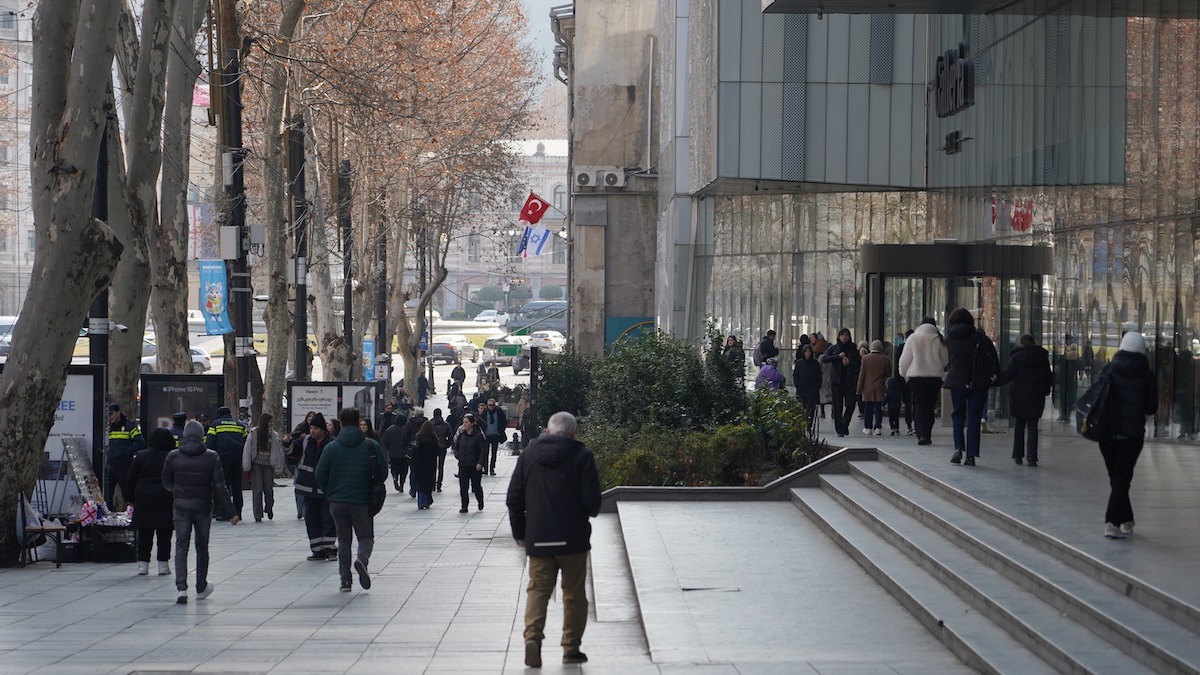Civil disobedience grows in Georgia as diplomats, judges, and institutions dissent
Strikes engulf Georgia amid protests
After Georgian Prime Minister Irakli Kobakhidze announced that the country would suspend EU membership talks until 2028, a wave of large-scale protests erupted across various cities in Georgia.
But the resistance extends far beyond street protests.
A genuine resistance movement is growing in the country, with dozens and hundreds of employees from ministries, state institutions, judicial and medical organizations, universities, schools, theaters, museums, and more joining the cause.
Several Georgian diplomats have resigned in protest against the government’s policies.
Below is a list of such notable acts of dissent known so far. This article will continue to be updated.
Diplomats
On November 30, Georgian Ambassador to Lithuania Salome Shapakidze announced her resignation.
She wrote on her X (formerly Twitter) page:
“I submit my resignation as Ambassador of Georgia to Lithuania.It was honour& privilege to serve my country’s National Interests for more than a decade and humbly contribute to its sovereignty&territorial integrity that go handinhand with EuroAtlantic quest! Georgia is Europe!”
I submit my resignation as Ambassador of #Georgia to #Lithuania.It was honour& privilege 2serve my country’s??National Interests 4more than a decade&humbly contribute to its sovereignty&territorial integrity that go handinhand with??&EuroAtlantic quest!Georgia is Europe!
— Salome Shapakidze (@ShapSalome) November 30, 2024
On November 30, David Solomonia, Georgian Ambassador to the Netherlands, resigned. His statement was shared on social media by his sister:
“Most of the three decades I have spent in Georgia’s diplomatic service were dedicated to advancing its European integration. It is a great blessing when professional duties align with one’s life choices. I have diligently fulfilled my responsibilities and believed that I could contribute, even if just a little, to Georgia’s progress toward Europe. Today, that hope has ended.
I condemn any violence and resign from my position as the Extraordinary and Plenipotentiary Ambassador of Georgia to the Kingdom of the Netherlands,” said David Solomonia in his statement.
On November 30, Irakli Vekua, the Chargé d’Affaires of Georgia in Italy, announced his resignation.
On November 30, two sources from the Georgian Ministry of Foreign Affairs and the Georgian Embassy in the United States confirmed to the Georgian service of Radio Free Europe that Georgian Ambassador to the U.S. David Zalkaliani had also resigned.
On the morning of November 29, it was reported that Georgia‘s ambassador to Bulgaria, Otar Berdzenishvili, is stepping down from his position. He announced his decision on the social platform X.
Berdzenishvili wrote that during his two years in diplomatic service, he and his colleagues actively worked towards Georgia’s Euro-Atlantic and European integration. He also expressed solidarity with the protesters.
“No to violence against peaceful demonstrators! Full solidarity!” the diplomat wrote.
????????? pic.twitter.com/WBuQM3tKP3
— Otar Berdzenishvili (@OtariB) November 29, 2024
Otar Berdzenishvili began his diplomatic career in 2000. Since 2023, he has served as Georgia’s ambassador to Bulgaria. Prior to this, he worked as an advisor to the Minister of Foreign Affairs and was also Georgia’s ambassador to the Republic of South Korea.
- Georgia’s president urged the people, opposition, and diplomats to “resist and fight to the end”
- European Parliament: Georgia’s October 26 elections ‘rigged’ – What’s in resolution?
Another diplomat, Georgia’s ambassador to South Korea, Tarash Papaskua, wrote on social media:
“Russia continues to occupy 20% of our country’s territory. It is waging a destructive war against Ukraine. It is fighting against Europe, the democratic world, and threatening global security. In this situation, we need Europe and NATO more than ever. We need greater solidarity and support from the free world!”
Georgia’s ambassador to the Czech Republic, Tea Maisuradze, stated that for Georgia, especially in the context of Russian occupation, there is no alternative to European Union integration.
The ambassador wrote that she and her fellow diplomats have worked tirelessly for many years to advance Georgia’s path toward EU and NATO membership and to strengthen ties with strategic partners.
“Today, with more than 20% of our country’s territory occupied by Russia, deepening and strengthening relations with our Western friends and allies takes on special significance.
Returning to the European family is our country’s historic choice. Full membership in European and Euro-Atlantic structures is, in the interests of our country, without alternative,” the diplomat wrote on social media.
Immediately after the Prime Minister’s briefing on November 28, a joint open letter signed by more than 100 employees of Georgia’s Ministry of Foreign Affairs was circulated on social media. They expressed their disagreement with the government’s decision to suspend EU membership negotiations.
“The current wave of EU expansion has given Georgia an unprecedented historic opportunity to return to the European family. This situation is linked to international political developments. A unilateral rejection of this opportunity will lead to strategically negative consequences. It is possible that such favorable conditions for joining European and Euro-Atlantic structures may never arise again.
Moreover, halting the negotiation process will result in the country’s isolation. Without the support of Western partners, Georgia faces threats alone, especially as these threats intensify amid ongoing international developments, particularly regarding security,” the letter states.
The Foreign Ministry employees also argued that removing EU membership negotiations from the political agenda contradicts Article 78 of Georgia’s Constitution.
“We remain committed to Georgia’s course of European and Euro-Atlantic integration,” declared the Foreign Ministry employees who signed the open letter.
Ministries
On November 29, public statements from employees of the Ministries of Defense and Education joined those from the Ministry of Foreign Affairs.
The statement from Defense Ministry employees was signed by over 100 individuals.
“European and Euro-Atlantic integration is the path to further strengthening the security and sovereignty of the country, as well as the primary priority of foreign and security policy. This is enshrined in the Constitution of Georgia and reflected in all conceptual documents at both the national and departmental levels.
We recognize the importance of Georgia’s cooperation with European and Euro-Atlantic structures and the contribution of Western partners to the development of Georgia’s defense capabilities. We remain committed to the obligation outlined in Article 78 of the Constitution of Georgia,” the statement reads.
The statement from Ministry of Education employees was signed by over 200 individuals (аs of 6:30 PM on November 29)
“We have served the national interests of an independent Georgia for many years. To us, this means building a European education system that provides equal opportunities for everyone, makes Georgian youth and scholars competitive, enables access to world-class academic and educational spaces, and fosters the development and strengthening of a democratic, lawful state.
We believe yesterday’s announcement to withdraw Georgia from EU accession negotiations until 2028 does not align with the country’s strategic interests and contradicts Article 78 of the Constitution of Georgia.
Exercising our right to free expression guaranteed by the Constitution, we reaffirm our commitment to Georgia’s European and Euro-Atlantic integration path,” the statement reads.
The statement from the Public Service Development Agency employees was signed by over 100 individuals (аs of 6:30 PM on November 29)
“We firmly support Georgia’s aspiration to become a full member of the European family and believe that the process of European integration is both irreversible and essential to ensuring a dignified life for our citizens. We consider the decision to halt EU accession negotiations until 2028 to be severely detrimental to the country’s interests.
Our unwavering commitment is to continue our work in alignment with European standards and to uphold the values critical to the nation’s future. We remain loyal to our country, its Constitution, its laws, and its obligations under international agreements, including the goal of European integration, as recognized and enshrined in the Constitution of Georgia,” the statement reads.
Judges
Employees of the Constitutional Court have also publicly opposed the decision made by “Georgian Dream.” In their joint statement, they assert that this decision disregards the constitutional will of the Georgian people:
“We call on those responsible for exercising public authority to adhere to the constitutional order of Georgia and reverse the decision to halt EU accession negotiations until 2028. It is imperative to stop isolating Georgia from the European community and prevent the negative consequences of such actions.
We urge public servants working in government institutions to take a clear stand on the unfolding events,” the statement reads, signed by 16 employees of the Constitutional Court.
Additionally, 17 judges have issued their own statements, distancing themselves from the decision by “Georgian Dream” and affirming that Georgia has no alternative to European integration.
“Within the framework of professional ethics, we maintain political neutrality concerning the ongoing political processes in the country. However, we condemn violence and dissociate ourselves from any decision or action that contradicts the requirements of Article 78 of the Constitution.
We remain loyal to the oath we took as judges, before God and the people, and firmly believe that Georgia’s future lies in Europe. Georgia belongs where human dignity, freedom, and peace are the highest values. Therefore, Georgia’s rightful place is in Europe!
This statement is open for signing by any judge,” the judges declared.
Universities suspending academic activities
On November 29, several universities in Georgia announced they were suspending academic activities as a form of protest.
Caucasus University stated that academic activities were temporarily suspended due to the current events in the country.
Ilia State University’s academic council issued the following statement: “We are outraged by the rejection of Georgia’s European perspective. We believe it is the duty of the academic community to defend the country’s European future.”
The University of Georgia also announced the suspension of academic activities, stating: “There are moments when everything must be put aside. In the current situation in Georgia, we are halting studies. We believe the primary duty of everyone today is to return Georgia to the path of its European future.”
Sulkhan-Saba Orbeliani University announced that it would suspend classes from 5 p.m. on November 29. Students were informed that updates on the resumption of classes would be sent via email.
GIPA, the Georgian Institute of Public Affairs, joined the protest, stating, “As a university committed to the ideals of democracy and freedom since its founding, GIPA supports Georgia’s aspiration to become a full member of the European family. Academic activities are temporarily suspended.”
The Business and Technology University (BTU) also decided to suspend academic activities, stating, “We share the position of our students, academic staff, and administration regarding the European integration process. The university’s academic council has considered the students’ interests and the current situation and decided to halt academic activities.”
Protest hotspots in schools

“Class is canceled. The teacher is on strike. Georgia will not become Russia!” — this photo of a school blackboard with the message has been widely shared on social media in Georgia. The author of the message is teacher Maia Ekaladze.
“You can punish me. Georgia will not become Russia,” Maia Ekaladze wrote.
Information is also circulating on social media that the 186th public school has also declared a strike.
“We are real teachers! Maybe not all of us, but…” — one of the teachers from this school posted a photo with this caption on social media.
Tbilisi, School No. 136. Anna Tvauri, a history and civic education teacher, wrote on the board in her classroom: “Russia is the enemy!” She then listed key historical facts to support this statement.
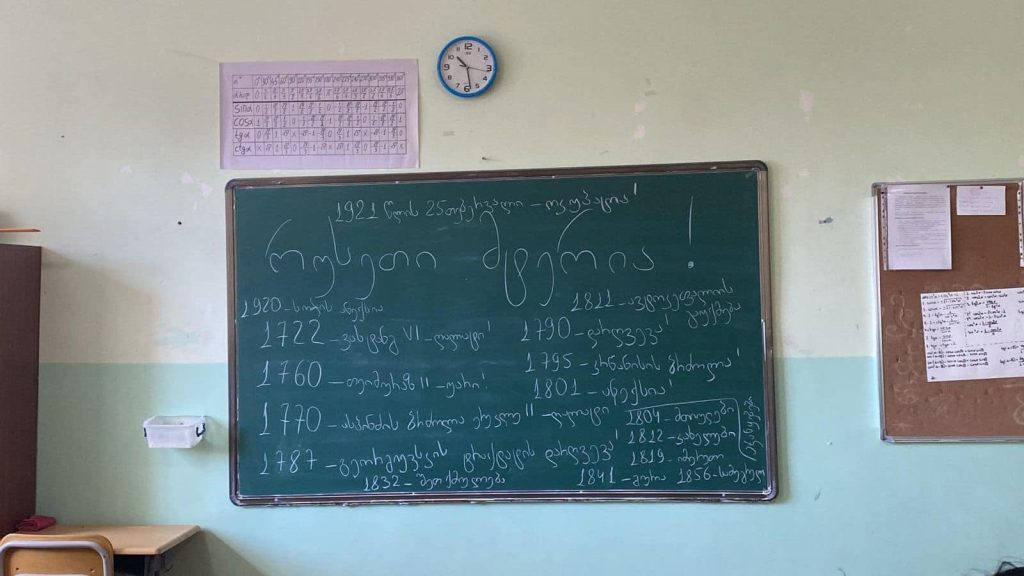
Strikes engulf Georgia amid protests











